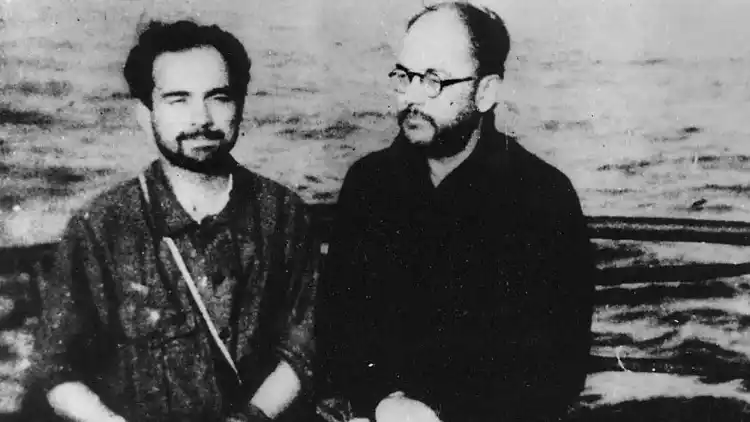
 Saquib Salim
Saquib Salim
Abid Hasan Safrani is one of the least talked about freedom fighters of India. However, in a story with Netaji Subhas Chandra Bose as the protagonist, Safrani is an indispensable character in it. Netaji met Abid Hasan in Germany after his famous ‘great escape’ from Kolkata jail in 1941. Abid was studying engineering in Germany. In his first meeting, he was so impressed with Bose that he became his ardent follower. Netaji also trusted him.
Abid served as Netaji’s secretary; coined the slogan ‘Jai Hind’; wrote lyrics for the anthem (a loose translation of Jana Gana Mana), and was the only one to accompany Netaji during his famous three-month submarine journey from Berlin to Japan. After the formation of Azad Hind Fauj, Safrani led the army during the Imphal war.
The stories of Azad Hind Fauj, its battles, and reverses are well known. The INA’s heroic battle against the British Army in Imphal was led by Abid Hasan, The INA fighters had to retreat from the front under Netaji’s orders under the changed scenario. The resilience and valour of the Fauj are now a part of folklore. However, as a nation, we have forgotten the man who was leading this Army in the field at this crucial juncture. Abid had shared the idea for which he and others were fighting in a public lecture in 1970.
Abid believed that each unit of Fauj was a model of united India. It had soldiers from Balochistan, Punjab, Assam, Kashmir, Tamil Nadu, Gujarat, and other regions. Soldiers belonged to different religious groups, viz. Muslims, Hindus, Sikhs, and Christians. Every caste and every language were represented. Each unit was ‘a living tribute to the unity of India.’ Abid said, “We had our different private faiths and we had our different languages. However, in our purpose and political belief, we were a well-knit, determined and indivisible whole.” Abid believed that the religious, regional, linguistic, caste, and traditional differences were exploited by the petty political leaders in India. Leaders exploit these differences and weaken the larger national cause. But, when these groups adopted a single ideology, nationalism, they became a unit.
Abid said, “No one had asked us to cease to be a Tamilian or Dogra, a Punjabi Muslim or a Bengali Brahmin, a Sikh or an Adivasi. We were all that and perhaps more fiercely so than before, but these matters became personal affairs. We ceased belonging to groups like that because India became our goal and with it our endeavour to establish India to greatness due to her. We are not counted separately and come into the reckoning as a group. We took it upon ourselves to establish this all-embracing India. This became our purpose in life, it gave meaning to our existence. More importantly, it gave us a new identity that to some were for the first time.”
Abid believed that Indians wanted to fight the British and free the country but needed a call from a sincere leader. As soon as the call was given by Netaji, Indians, who till then remained divided among religion, caste, language, etc. united and threw their lot behind Netaji. India, the idea of India, the Indianness, the dream of a united India, and the freedom of India were bigger than any sectarian identity.
The desire was to prove to the world, as propagated by the British, that India is not a divided people. India was painted as a comigration of warring groups living in a geographic region. It was the enthusiasm to prove to the world that these ‘different’ people are one united nation. A national ideology and sincere leader was enough to unite Indians into one nation.
The teachings of Abid Hasan, great son of the soil and a shadow to Netaji, have not lost their relevance for us. India, no matter how much divided it seems, will remain ‘an inseparable whole. We need to reject the petty political leaders, who divide us and wait for the right call of unity from a sincere person like Netaji.
Saquib Salim is a Historian and a Writer
